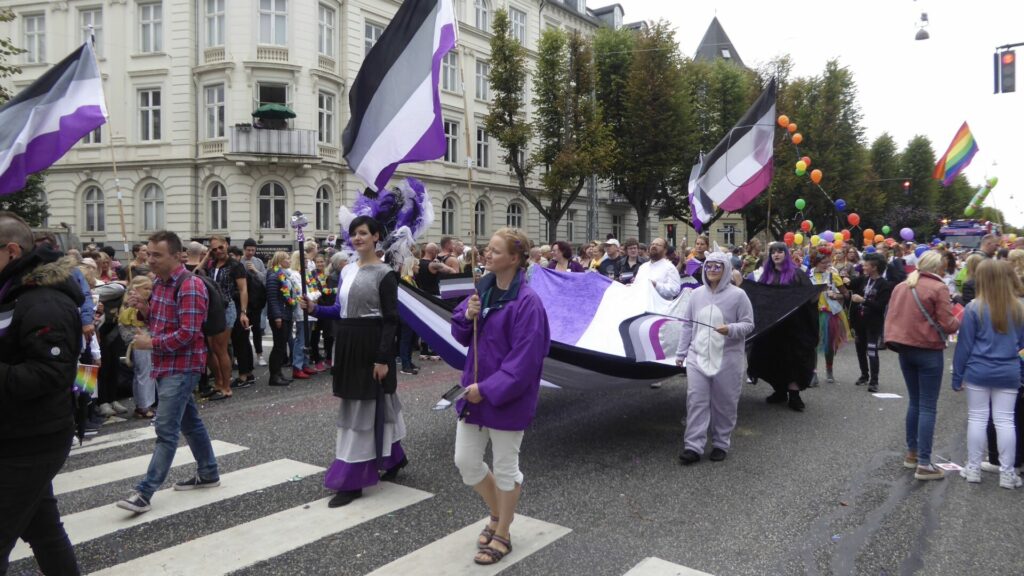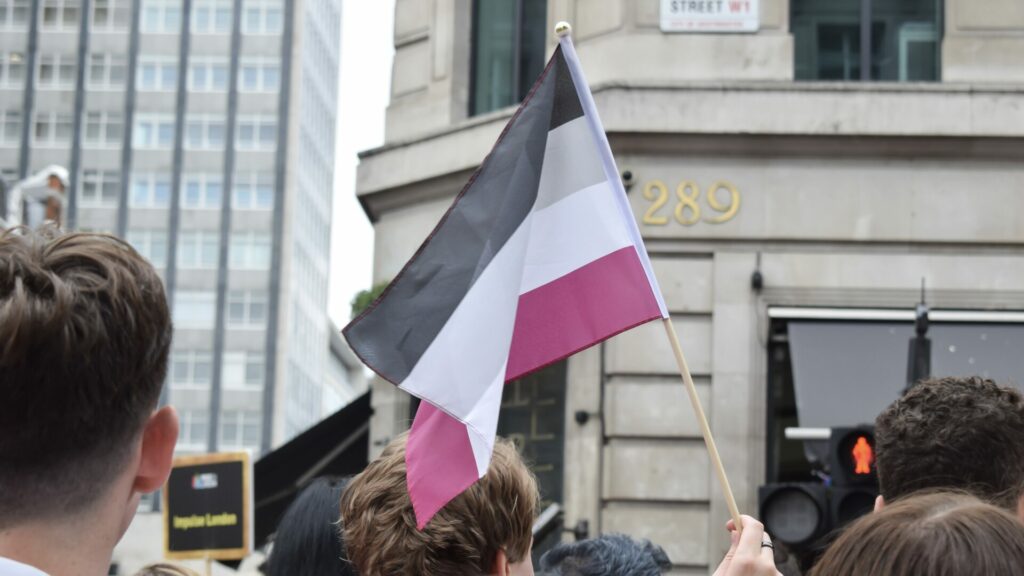LGBTQ charity calls for ‘greater awareness’ of asexual experiences
The research forms part of Just Like Us' Positive Futures report which is due out in June.

New research indicates that around a quarter of young adults who identify as asexual feel excluded from the wider LGBTQ community.
The LGBTQ charity, Just Like Us, released its research on Thursday (6 April) – International Asexuality Day – with the charity’s CEO calling for “greater awareness” of asexual experiences.
The research forms part of Just Like Us’ Positive Futures report which is due out in June.
From a survey of 3,695 young adults aged 18-25 27% said they “rarely or never” feel a part of the LGBTQ community. Aside from those who said they were questioning their sexual or gender identity, asexual people were most likely to say this.

18% said they “rarely” felt included and 9% said they “never” felt included.
30% of asexual young adults said they “always” feel included and 30% said they “sometimes” feel included.
39% of asexual people of colour said they rarely or never felt part of the LGBT+ community, compared to 24% of white asexual young people.
It’s also estimated that between 0.44-1 percent (295,768 to 672,200) of the UK population identifies as asexual.
Conversely, 56% of non-binary young adults said they always felt included in the community. Only 3% said they never felt included.
The data paints a disappointing picture that suggests a significant portion of young adults identifying as asexual don’t always feel like they’re a part of the LGBTQ community.
Amy Ashenden, the interim CEO of Just Like Us touched on this. In response to Just Like Us’ data, she said: “I hope that this research makes clear the need for greater awareness of the lived experiences and realities of asexual people, especially as we can see a wider pattern here of LGBT+ people of colour feeling excluded from our community.”
She also urged all schools to sign up for School Diversity Week (26-30 June) to help enforce LGBTQ-inclusive education.

Asexuality has become more prominent in mainstream discussions in recent years. This is in part thanks to the work of activists like Yasmin Benoit, a previous Attitude Pride Award winner.
Speaking to Attitude in 2021 Yasmin admitted it hurt that the LGBTQ community wasn’t as inclusive as it could be.
“Because of the miseducation and misconceptions around asexuality, people think that you are anti-sexuality and you’re going to come in there and say, ‘Stop talking about sex, stop being proud of your sexuality!'” This is far from the case!
Heartstopper creator, Alice Oseman also recently discussed how people remain confused by the terms. They identify as an asexual romantic – little-to-no sexual attraction, or little-to-no romantic attraction.
“For most people, they’re the same. But for aro/ace people they can differ. I am both ace and aro.”
Oseman also teased that asexuality will be explored in Heartstopper season two. This will be via the character of Isaac (Tobie Donovan)
“Netflix will hate me for spilling, but yes, asexuality will be discussed on TV in a big way. I’m excited. I hope it’ll change the world.”
They continued: “I hope when it happens in Heartstopper it doesn’t feel like a lesson. You know Isaac, you care about him, and now you’re going to learn something new about him.”
